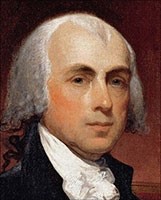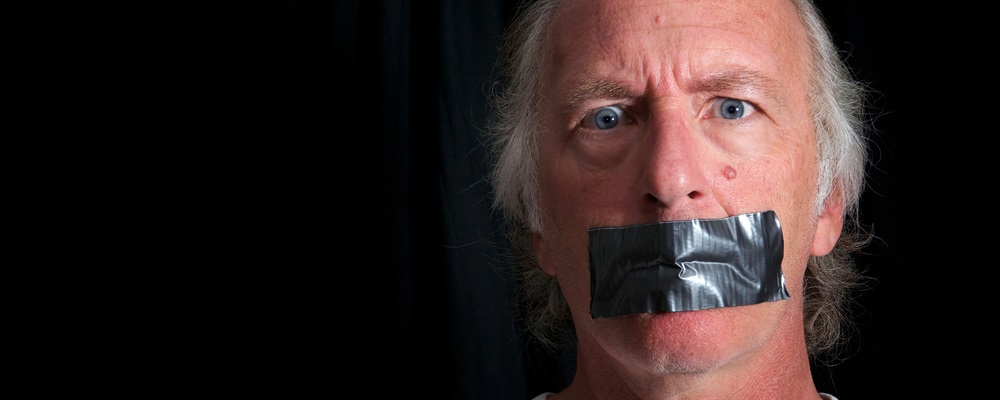Some American college campuses have become breeding grounds for anti-free speech and politically correct zealots, some totally deranged to the point of using physical violence and property destruction to prevent speakers they oppose.
Recent alarming examples include conservative columnist Ann Coulter’s speaking at University of California, Berkeley, and author Charles Murray’s lecture at Middlebury College — both prevented by physically violent student actions.
 |
| James Madison |
Celebrity speech fights get headlines, but too often university officials or student governments restrict student speech, as in Kansas, Alabama, Colorado and West Virginia. For example, the University of South Alabama tried to force a student to take down a “Trump/Pence 2016” sign from his dorm room.
Ignored in media reporting, a new survey shows that an overwhelming majority (92%) of millennials (ages 18 to 34) support free speech.
Sadly, some American officials seem to share the campus protestors’ abysmal ignorance of the U.S. Constitution, including the First Amendment’s free speech guarantees, which are part of the Bill of Rights authored by James Madison.
Hindering Free Speech
Free speech in America is not an absolute right.
In Schenck v. United States (1919), the U.S. Supreme Court invented the “clear and present danger” test that determines limits on free speech. That was the origin of the “falsely shouting fire in a crowded theater” test; speech that is dangerous and false is not protected, as compared to speech that some may view as dangerous, but that also may be true. That test certainly does protect free expression of opinion on college campuses or elsewhere.
My interest in this campus free speech battle was intensified by seeing a live televised May 21 commencement address at the University of Notre Dame by Vice President Mike Pence, in which he warned against attacks on free speech on college campuses. He said: “Administration-sanctioned political correctness … should not be met with silence,” and encouraged students to speak up against “the increasing intolerance” toward opposing views.
Within minutes of Pence’s remarks, a college-age acquaintance of mine on Facebook twice “liked” an anti-Pence protest walkout of about 150 of the Notre Dame graduating class of 3,150. Concerned, I sent this email: “Just read your ‘like’ endorsement of the students who walked. Of course, they, and you, have a right to your opinions, but Pence’s address was one of the best Catholic, conservative commencement addresses I ever heard.”
My young friend’s parent (whom I had cc’d) added: “You may not agree with what is said, but you at least have the experience of listening, which allows you to better argue your point of view. I suggest that, unlike the students who walked out, you be willing to have a dialogue with others who may not share your point of view.”
Opening the Door to Discourse
These days, many Americans, including students, fail to understand that proper free speech does have limits imposed by civility — a concept all but lost in modern discourse.
Since 1837, the rules of the U.S. House of Representatives have been based in part on Jefferson’s Manual, written in 1801 when, as vice president, he presided over the U.S. Senate. Rule XVI deals with proper decorum and debate.
With 435 House members, obviously rules are essential to control debate. A basic House rule forbids members to use “unparliamentary” or “offensive” words, such as racist or Nazi. Impugning motives of a member is forbidden. When a congressperson uses such language, any member can object and demand that “the words be taken down.”
At the time, when the charge of “racism” was yet to be demeaned by its abuse, as it is now, on December 14, 1973, during debate in the House, I objected when Rep. Bella Abzug of New York accused as “racists” any House member, including myself, who voted for a pending amendment she opposed.
House Speaker Carl Albert, Abzug’s fellow Democrat, upheld my objection, and the offending member, a vocally unhappy Abzug, was ordered to be seated and not allowed to speak again on that day.
Civility greatly needs to be taught in American colleges — but parents, and especially those who pretend to be our nation’s leaders, must set the example.
Yours for liberty,

Bob Bauman, JD
Chairman, Freedom Alliance
Editor’s Note: Turmoil within the United States and around the globe has made it critical to know your options when it comes to effectively protecting your assets. That’s why Bob Bauman has updated his controversial book, Lawyer-Proof Your Life. Click here to claim your copy and learn how you can safeguard your wealth. Don’t wait until it’s too late to act.
Jocelynn Smith
Sr. Managing Editor, Banyan Hill



